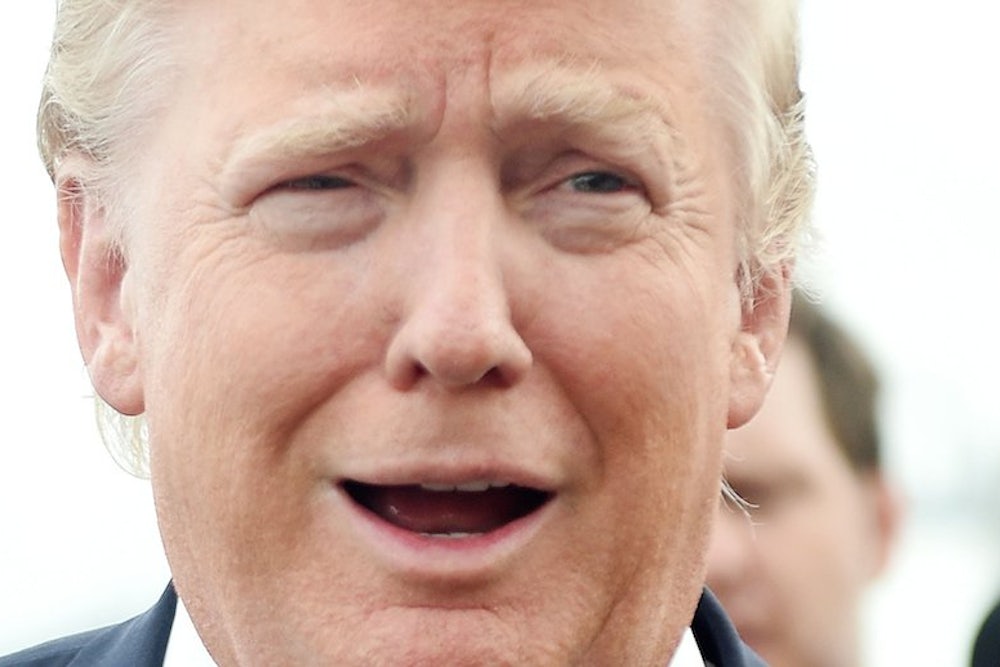Senator Lindsey Graham echoed the feelings of millions of Americans when he called Donald Trump a “jackass” for saying that Senator John McCain isn’t a war hero because “he was captured. I like people who weren’t captured.” Trump retaliated by revealing Graham’s cell phone number during a speech in South Carolina on Tuesday, prompting Graham to tweet:
Probably getting a new phone. iPhone or Android?
— Lindsey Graham (@LindseyGrahamSC) July 21, 2015Trump’s stunt is one of many that have helped him dominate political news since announcing his candidacy on June 16. The following chart from Google Trends shows several large spikes in Trump-related search traffic over the past five weeks, which we've compared to the other Republican and Democratic candidates who made any kind of blip over the same time period:
June 16: Trump announces he’s running for president. He speaks about job creation while bashing Obamacare and Common Core, but reserves his harshest attacks for immigrants, saying, “When Mexico sends its people, they’re not sending their best. They’re not sending you. They’re not sending you. They’re sending people that have lots of problems, and they’re bringing those problems with us. They’re bringing drugs. They’re bringing crime. They’re rapists. And some, I assume, are good people.”
June 26: After Univision dropped his Miss Universe and Miss USA beauty pageants from its network, Trump responded with a letter to CEO Randy Falco explaining that all company employees are banned from the Trump National Doral golf course. Univision’s headquarters is adjacent to the course, but the network had already advised employees to “not stay at Trump properties while on company business or hold events/activities there.”
June 29 – July 1: NBCUniversal cuts ties with Trump. He sues Univision for $500 million. Macy's drops his fashion line.
July 14: A day after topping a GOP poll for the first time, Trump tweets the hashtag #MakeAmericaGreatAgain with a picture of the American flag superimposed over his face, hundred dollar bills, the White House, and marching soldiers. As an astute Twitter user noticed, the soldiers aren’t American, but Nazi Waffen-SS. Trump’s staff blamed an intern.
Found @realDonaldTrump's german soldier stock image here (searched "world war II soldiers") http://t.co/GKkcNTUKpm pic.twitter.com/ysWGeePZIr
— Reed F. Richardson (@reedfrich) July 14, 2015July 18: Trump takes his feud with John McCain to a new level, saying that, “He’s not a war hero. He was a war hero because he was captured. I like people who weren’t captured.” The crowd at the Family Leadership Summit in Ames, Iowa, met his comments with boos, and Republicans scaled back their support. The next day, Trump refused to apologize for his comments, saying McCain should apologize for calling Trump supporters "crazies."
The Other Candidates:
The four other candidates who spiked, albeit to lesser degrees, during Trump’s media dominance have done so through more conventional means: with large, planned political events. Senator Bernie Sanders spoke to nearly 10,000 supporters at the Veterans Memorial Coliseum in Madison, Wisconsin. The most trafficked days for Hillary Clinton, Jeb Bush, and Scott Walker came when they launched their respective campaigns. Too bad for them, those aren't repeatable events.
